What do you think will be the long lasting impacts, if any, of the Women’s march that happened on Jan. 21?
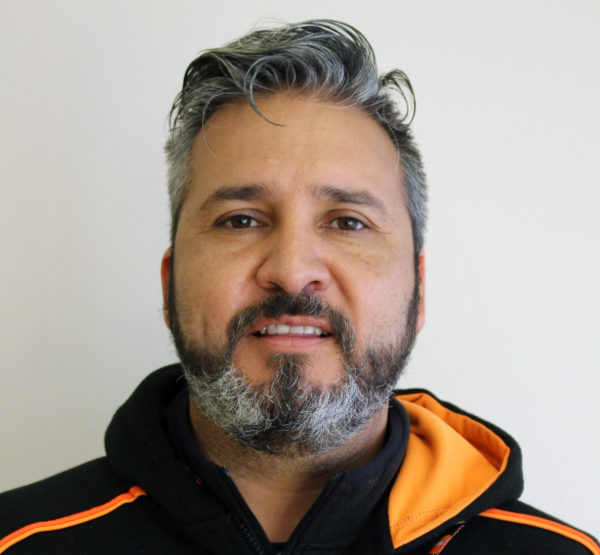
Claudio Daporta
Age: 42
Major: FLS student
“I think it will change the system, the electoral college. The system is unfair. In my country (Argentina) nowadays, women have a lot of power. Maybe more than men. The women changed the system by fighting for more power. Now about half of Congress is women.”

Anthony Estephan
Age: 19
Major: Architecture
“It really means that anyone can come out and demand things in life and they won’t be hushed up by Congress. Millions of people have been demanding certain things and working hard for them such as the Civil Rights Movement with Martin Luther King and John Lewis. This is a world breaking record with millions of people even all over the world, from places like London, Paris, and in cities like Chicago and L.A. I think it’s going to inspire millions of people to follow their footsteps in a way that means, ‘Hey. I can do this. I can get up and say no to this. I can say this and it has to be done right now. I can’t just sit here and do nothing.”
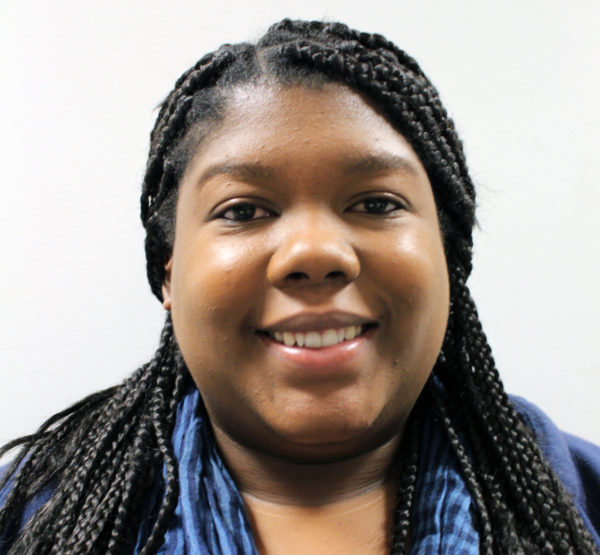
Kimberly Sandoval
Age: 28
Major: Elementary Teacher Education
“I didn’t really watch that much of it. I just saw it through social media, what was going on and friends’ posts who were there. In Washington, D.C., one my friends is actually a teacher, and she actually took some of her students to Washington, D.C. to be a part of it. My impact that I saw from it was mainly for the next generation, the younger kids who are watching the example of other strong women who are influential, celebrities and people who they look up to. I think that was the strongest message that I got is that they were really doing it for their kids. Another one of my friends took her kids with her. She even has a little baby. He’s about one. She took him and he was holding a sign in the march, so I think it really spoke volumes to the power of just giving our children, the next generation, a strong voice. Not to be afraid to stand up for whatever cause that it might be that they believe in. I think it showed the power through unity of that, and not just based on a gender, but based on your voice and ability to speak up and take a stand. I think our next generation will understand that more than ever, even if you’re not a liberal person, they’ll see the importance of taking a stand.”
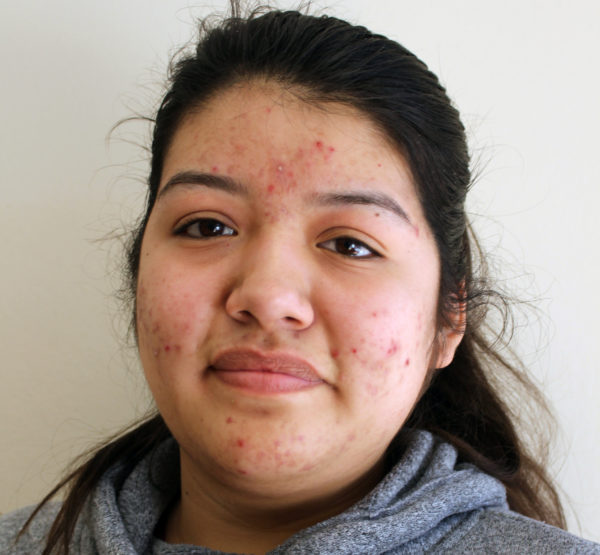
Sandy Rodriguez
Age: 19
Major: Liberal studies
“I think people are going to be more open and united now. So many people got united in different cities in the nation, so they’re not going to let bad diplomatics and politics take advantage in other words, of what has already been what we consider a good nation. I think everybody is going to raise their voice, but in a good positive way. There’s still some people that are going to be against it and they’re going to fight against it too, but looking at the people that got united in all different cities, I think that voice is going to be more heard than the people that don’t support women’s rights because why would they go back to how things were in the past when things are changing and styles are changing and life is changing? They’re going to change into something better, not go back into something worse.”

Tim Schellin
Age: 25
Major: Computer Science
“I think it will show Trump that we don’t stand for bigotry and although he tries to be kind of touchy on that, publicly it’s obvious he has some pretty outdated opinions when it comes to that. I think that the people who protested that showed a unified front, that the American people won’t stand for it. And I think it’s really sending a message that we’ve really come a long way since the days when women couldn’t vote and when other minorities were oppressed, and we’re just going to continue to keep going. Now we’re not going to make any sacrifices and we’re not going to make any steps backward.”
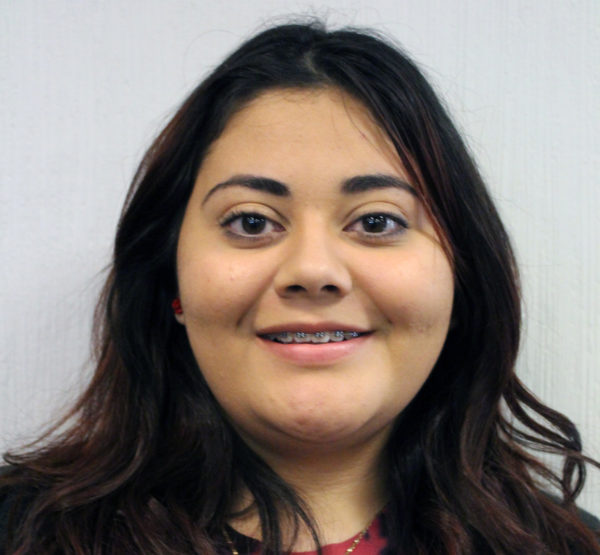
Jazlyn Mendoza
Age: 18
Major: Psychology
“I think the impact would be that more women out there will start noticing that there’s a lot of women coming together and they’ll have confidence to unite and get their rights back, the way they’re supposed to be and get equality back, men and women equally. I think that’s what’s going to happen. More men and women will start coming together. If we go backwards, I think they’re just going to come back stronger than before.”

Karla Aguilar
Age: 21
Major: Sociology/Forestry
“I think the first initial impact- because I actually went- was just the sheer magnitude and the solidarity that you felt in the air. There was a lot of white faces too, so that was interesting. It definitely made the world listen. We were definitely very visible that day and I think it will be a day that goes down in history, with the sheer numbers that showed up. But now that that’s been out of the bag, there’s still a lot of division and I think it’s only going to get worse, especially in activist organizing circles. It’s time to hold everybody accountable and really deal with all the toxicity that will come with a very openly racist president and I really hope white women step up for all the POC out there and ultimately I hope that would be the long-term impact. That’s my optimistic view of what’s going to go on.”

Sabrina Mills
Age: 19
Major: Music Production
“It really brings awareness that there’s an actual division of the way people are treated because of their gender. Women are exploited in a male dominated society and people are still so unaware and they contribute to it a lot without even realizing it. I think that’s a good effect of the women’s march, that it actually brings awareness to it. I didn’t even know that women were taxed on tampons more than on other things. If anything that should be less taxed. That’s ridiculous. Things like that are really important. People don’t realize how different we’re actually treated. It’s definitely progress and eventually it will go forward but things have to get worse with Trump as president especially. It’s going to bring out a lot more exploitation and a lot more discrimination and treatment as objects more than as actual people. I don’t think people are going to stand for that.”
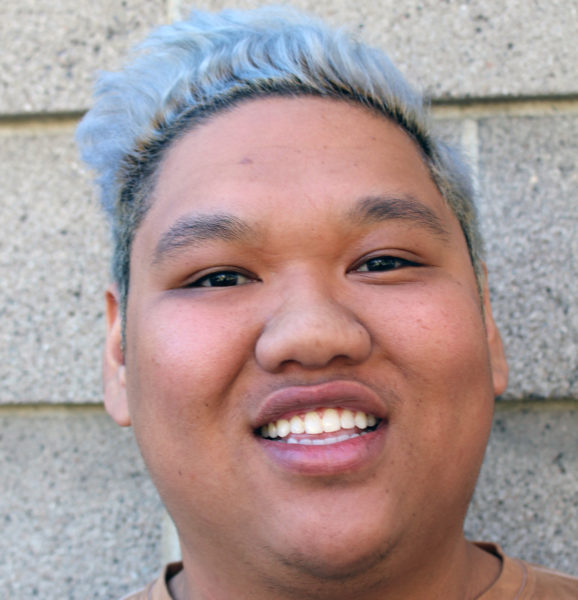
Ivan Delarosa
Age: 20
Major: Business
“I feel like it filters into the way the government is set up and how a democracy gives people a chance to tell the government that we have the power. Also, it gives people the chance to let people know that our voice does count and that if we want change to happen we have to take action. I hear a lot people saying that because social media is so big that people just want to go on the internet and talk quick and just say something really quick and get their point out and although that creates awareness, if we want people in power to take action and give us what we want, then we have to be involved. I feel like a lot of people say it’s like an anti-Trump type of thing, but I think in the majority sense, again I think it’s to have people in power really listen to us because I feel like a lot of people feel vulnerable and unrepresented by the way the election probably turned out. Right now Iit’s Trump’s very early stages of being the president. We gave him the highest seat in our government and gave him a lot of power. I feel like it’s really early, so in that sens -not are quick to judge- but I feel we should have waited to kind of see where Trump really is going but as of right now I feel like it is a step in a good direction.”


